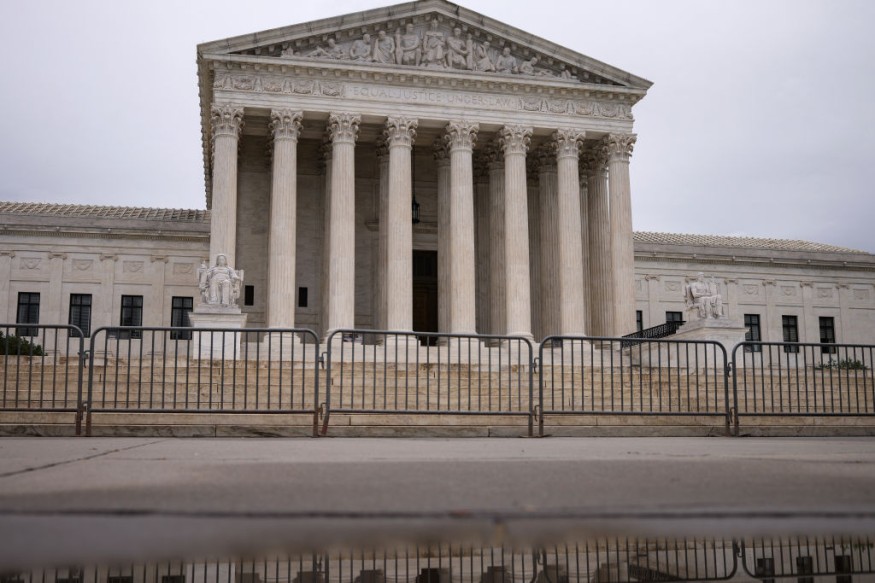Supreme Court Rules Against Temporary Protected Status Getting Receiving a Green Card, Says No Right After Entering Illegally

The Supreme Court has unanimously issued a 9-0 decision on Monday, upholding a law preventing illegal immigrants from seeking green cards.
The Supreme Court ruling said that the said law is constitutional, adding that those illegal immigrants who later earned a Temporary Protected Status are still ineligible to apply for a permanent residency, according to The Daily Wire report.
Justice Elena Kagan said that Temporary Protected Status gives foreign nationals nonimmigrant status. However, she noted that it does not erase an unlawful entry.
Kagan was known as one of the Court's more liberal justices.
The recent Supreme Court move has presented a hindrance for thousands of U.S. residents who are under TPS, who fled their home country due to unsafe conditions, according to an ABC News Go report.
Kagan said that admission is defined as the lawful entry of foreigners into the United States after inspection and authorization by an immigration officer.
She added that the TPS program does not admit foreign nationals, rather it gives them nonimmigrant status.
Read also: Pres. Joe Biden Plans to Demote the Second Top U.S. Customs and Border Protection Official: Report
Temporary Protected Status
The TPS are given to migrants who come from countries plagued by war or disaster. It allows them to work legally in the court, while also protecting them from deportation.
Currently, there are 400,000 people from 12 countries with TPS status. These countries are Myanmar, El Salvador, Haiti, Honduras, Nepal, and Nicaragua.
Illegal immigrants from Venezuela, Somalia, South Sudan, Syria, Sudan, and Yemen are also included.
Kagan noted that the House of Representatives has already passed a measure that would make it possible for TPS recipients to become permanent residents in the U.S.
However, the bill could face uncertainties in the Senate, according to a Fortune report.
The length of a TPS designation can last from six to 18 months. It can also be extended for many years.
At least 60 days before the expiration of the TPS designation, the Secretary of Department of Homeland Security must announce whether he or she will extend or end the TPS designation, according to the law as reported by Forbes.
The precedent case used in the Supreme Court's decision was with a Salvadoran immigrant named Jose Santos Sanchez.
Sanchez was protected under TPS in 2001 after illegally entering the U.S. in 1993. He applied for a green card in 2014. However, he was deemed ineligible.
Illegal Immigrants in The U.S.
In 2017, it was reported that there were 10.5 million unauthorized immigrants in the U.S., which represents 3.2 percent of the total U.S. population.
The 2017 numbers of illegal immigrants were a 14 percent drop as compared from the 12.2 million in 2007, according to a Pew Research report.
Border Patrol agents have made more than 381,000 arrests along the border during the fiscal year that started in October. About 82 percent of the apprehended illegal immigrants were single adults.
Meanwhile, the number of unaccompanied children migrant has increased by more than 90 percent, according to The Wall Street Journal report.
Border Patrol agents have been detaining at least 500 children a day in March, with officials expecting to have taken at least 16,000 children by the end of the month.
Read also: Trump-Era VOICE Office That Highlighted Immigrant Crime Will Stay Under Biden's DHS: Report
WATCH: Supreme Court rules on case of immigrants with temporary protected status - from CBS News
Subscribe to Latin Post!
Sign up for our free newsletter for the Latest coverage!
















